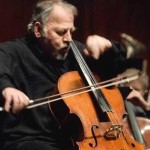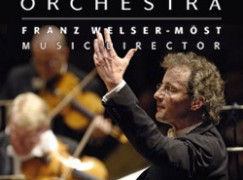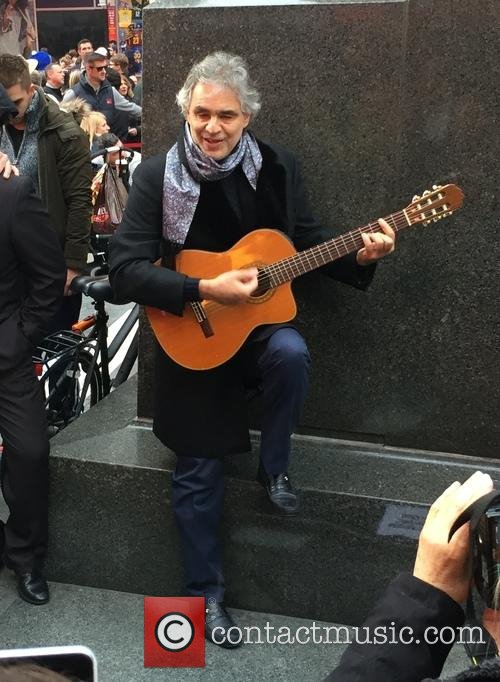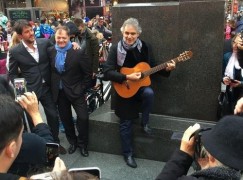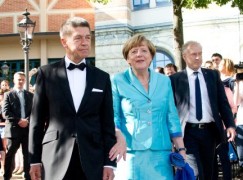Richard Morrison needs to recognise that both the Royal Opera and ENO are in fact substantially underfunded – as far as public money for their “establishment” is concerned. London has far too little opera – considering the population of its catchment area. Our politicians’ view of the way to nurture the live performing arts is over-influenced by the profitability of musicals and also of a few quite short-running spoken theatre productions in the West End – thanks to the torrent of tourism from which London retailers, restaurants and hotel owners benefit as well as its theatrical impresarios. The fact is that although ensemble work is the performing arts norm across Europe, it is now virtually unknown (away from dance companies and orchestras – for obvious reasons) in the English-speaking world.
The Bavarian State Opera’s current subsidy (from the city of Munich and from Bavaria) is 61.7 million euros, about £46 million for opera and ballet. And there are over 60 other opera companies in Germany subsidised to a comparable extent. For example, Augsburg’s theatre gets about £13 million to put on opera, plays and dance. The Royal Opera and ENO together get far less than Munich’s principal company – and Munich also supports another opera company at the Gärtnerplatztheater, recently rebuilt, with another £20 million. So Munich with 1.5 million inhabitants subsidises its two opera companies twice as generously as London. London needs to be realistic about what culture in terms of the live performing arts actually costs – if you want to do it properly.
You either subsidise opera or you forego nurturing an established opera audience – as we in Britain seem to be deciding. Even in the USA the whole structure of tax kickbacks for gifts to non-profit companies amounts virtually to a sort of “pluralist” subsidy system – and depends on choices made by private individuals but encouraged by what the US tax system allows rather than a publicly supported and endorsed process. In Britain, which is not a poor country and which relishes being host to mega-rich immigrants as well as enjoying the continuing presence of much “old” money too, we seem to have reached the point where neither central government nor local government can “afford” to support many ongoing aspects of our increasingly etiolated traditional culture. Outside London orchestral music and opera and even spoken theatre are minimally to be found and at unsuitably high prices where they do exist. So these kinds of “performing arts” culture are sadly and very definitely not for everyone.
The Coliseum is a huge theatre and the amount of opera done in it has shrunk considerably compared with its glory days in the 1980s and 1990s. Back then there was a steady attempt to raise prices in a market-testing operation encouraged by the Arts Council in the days of Mrs T hatcher to see how much opera could support itself – on the “user should pay” principle. The German system does not mean cheap opera for all. Prices in Munich and Frankfurt can be high. But there is in Germany an awareness that in many places the opera public cannot chip in that far by buying pricey tickets.
The cheapest way to put on opera and classical music is for the makers, orchestras and opera companies, to provide a lot of product where they live (without doing much touring) and to use an ensemble for the work that they do. Alas, London orchestras have also largely failed to follow American examples and maximise audiences by performing programmes three or four times in the same venue. A sure way that an opera company can extend the market is by using its ensemble to spread performances of particular productions and operas which have proved popular (and therefore remain in the the available repertory) throughout a 10-month season rather than featuring them for just a brief few weeks. That enfranchises real word of mouth, and can better in due course match supply to demand. That will gradually spread the word and engage with a broader and not necessarily informed public. Staggione – the Italian way – has led to the current disastrous situation in Italy where even opera centres like Naples and Florence only mount six or seven works in a year for sometimes as few as five performances each. No way to achieve a healthy opera economy. The future of opera depends on introducing new audiences to the joys of the artform, its expressive music, its singing, the ideas with which its masterpieces tussle so powerfully, its humour, its tragedy, its ability to communicate to a vast crowd in a personal way – because everybody hears the same voice the same way as if it’s just for them.
London needs more opera not less. Classical music and opera have to expand their popular base. Subsidy cuts can only make that harder and harder. The live performing arts in an age of mechanical reproduction cannot make money without debasing and abusing the skills on which they depend. Live performance is totally different from film and recordings because it’s fresh every time it happens, and audiences have to stay on their toes not to miss anything so valuable and worthwhile as it occurs. Live performance, making it happen, and being able to appreciate is a discipline for all involved – audiences just as much as performers and their army of helpers that make it work. This isn’t for robots. It is human in the highest sense. We lose it at our peril.
